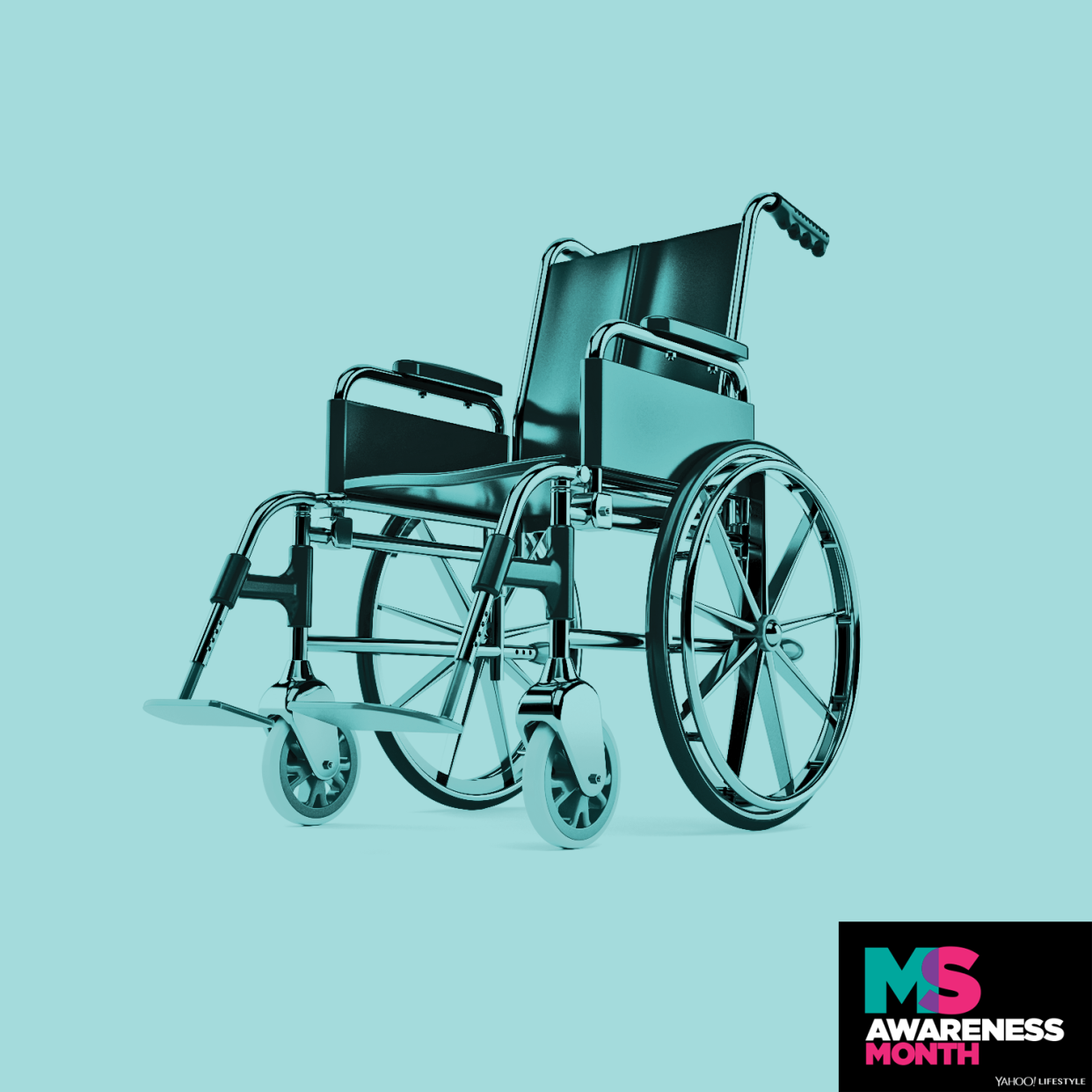'You won’t live a long life' and 4 other things people get wrong about this chronic disease

Many people have heard of multiple sclerosis — better known as MS — but not everyone understands what the chronic, debilitating disease actually is and how it affects a person’s body and mind.
MS is a disease of the central nervous system in which the nerve signals between the brain, spinal cord, and the rest of the body are disrupted. This can cause a series of symptoms, including fatigue, numbness/tingling, vision problems, cognitive changes (such as trouble learning new information), and muscle spasms. These symptoms run the gamut from mild to severe, can be unpredictable, and differ from one person to the next.
So it’s no wonder that there’s a lot of fear and misunderstanding surrounding the disease, which affects 2.3 million people worldwide and currently does not have a cure.
With that in mind, Yahoo Lifestyle contacted May Han, MD, an MS specialist at Stanford Health Care and an associate professor of neurology at the Stanford University Medical Center, and James Stankiewicz, MD, an associate neurologist at Brigham and Women’s Hospital and clinical director of the Partners Multiple Sclerosis Center at Brigham and Women’s Hospital, to clear up some common misconceptions about the disease.
You’ll be confined to a wheelchair.
An MS diagnosis doesn’t automatically mean you are destined for a wheelchair, since the disease affects everyone differently. While symptoms such as muscle spasms and weakness can affect a person’s gait, many people with MS don’t need assistance to walk, according to National Multiple Sclerosis Society’s Living with Multiple Sclerosis. However, some people with severe MS do need to rely on a wheelchair, while others use walking sticks to help with their balance.
According to the NMSS, a large-scale study of people with the disease found that 12 percent of people reported relying on a wheelchair or scooter, while 19 percent said they used a cane or other mobility device to walk.
A big influence on mobility: the timing of the diagnosis and treatment. Whether or not a person will need a wheelchair “really depends on how long they’ve had the disease and when they began treatment,” says Stankiewicz. “For someone newly diagnosed that’s young and hasn’t biologically had the disease for very long” they are likely better off than “if they had the disease for 15 years and the brain and spinal cord have taken a lot of damage.”

You won’t live a long life.
While some research shows that people with MS live seven years less on average (until age 76 compared to age 83, on average), the life expectancy of people living with disease has only increased over the past 25 years. “It’s certainly not a death sentence,” says Han. “Most patients with MS, especially with the advancement of therapies, live a very productive life. If they’re on the appropriate medication and are managing their disease, they do live close to a normal life.”
She adds: “Lifespan is not that different from normal life span. The outcome is way better than what it used to be.”
Adds Stankiewicz: “It’s a very treatable disease, but what puts patients in a better place is if they get an early diagnosis and get treated early. Early diagnosis and treatment can leave people better off. We have a number of good medications — in the old days we only had injections and they only worked so well. Things have changed a lot. There are a lot of different medications available, and I feel confident when I meet someone newly diagnosed that I’m going to be able to keep them in good shape in the long term.”
Along with following treatments to help manage the disease and getting any other health issues under control, such as diabetes, making lifestyle changes — eating a healthy diet, finding ways to stay physically active, and reducing stress — also help.
You can’t get pregnant.
MS is more common in women of childbearing age than in any other group, according to the NMSS, so it’s no wonder being able to get pregnant is a top concern. But the disease doesn’t have to stop any woman from trying to conceive. According to NMSS: “There is no evidence that MS impairs fertility or leads to an increased number of spontaneous abortions, stillbirths or congenital malformations. Several studies of large numbers of women have repeatedly demonstrated that pregnancy, labor, delivery and the incidence of fetal complications are no different in women who have MS than in control groups without the disease.”
In fact, pregnancy itself is protective, notes Han. It reduces the number of relapses, particularly during the second and third trimesters, according to NMSS.
The challenge is coming off of the medications that help manage the disease while trying to conceive, during pregnancy, and while breastfeeding, which can affect symptoms. “It depends on the disease activity,” says Han. “For someone with a very mild form it may not be a problem, but if it’s a very inflammatory disease, [there can be] a lot of relapses coming off the medication.”
That said, “if the patient is under the care of good neurologist or MS specialist, they do really well,” she says. “That’s why we work closely with the obstetrician and fertility experts.”
It’s also about timing, so try to conceive while the disease is in remission, if possible, and shorten the period when they’re not covered with the medication, notes Han.

Only older people get MS.
Sure, MS can occur in much older adults, but most people are diagnosed between 20 and 50 years old, according to NMSS. MS can also affect young children. The disease is also more common — two to three times higher, in fact — in women than men. And MS doesn’t discriminate when it comes to ethnicity: Although MS is most common in Caucasians of northern European ancestry, the disease affects most ethnic groups, including African-Americans, Asians, and Hispanics/Latinos, according to NMSS.
You shouldn’t exercise with MS.
Between mobility issues, fatigue, and the fact that symptoms can worsen with heat, working out can be a real challenge for those with MS. But experts don’t suggest canceling your gym membership. That’s because exercise offers several benefits to people living with MS, including improved strength, mood, and cognitive function, as well as less fatigue.
Stankiewicz recommends doing both aerobic (such as swimming, which also helps keep MS patients cool) and anaerobic exercises (such as lifting weights). “There are patients with more physical disabilities so the exercise has to be in keeping with what they can do,” he notes. “They can have balance problems or weaker legs, but it’s important to find ways to work around that. So you may not want to be on the treadmill, but you could be on an exercise bike.”
Han also suggests doing yoga, massage therapy, and/or acupuncture to help manage muscle spasms and pain, if those therapies are helpful. She also says that finding ways to reduce stress is essential: “You can’t eliminate stress 100 percent out of your life,” she says, “but how do you learn to cope with it so you don’t have secondary effects? By having a routine, like an exercise routine, sufficient sleep, meditation, or counseling. For some it’s music and for some it’s religion. It’s whatever works for them. [Stress reduction] is very important, and it’s not just unique to MS. It’s part of everyday living.”
Read more from Yahoo Lifestyle:
What you need to know about MS, a disease that probably affects someone you know
‘But you don’t look sick’: What’s it’s like to live with a ‘silent’ disease
Follow us on Instagram, Facebook, and Twitter for nonstop inspiration delivered fresh to your feed, every day.


